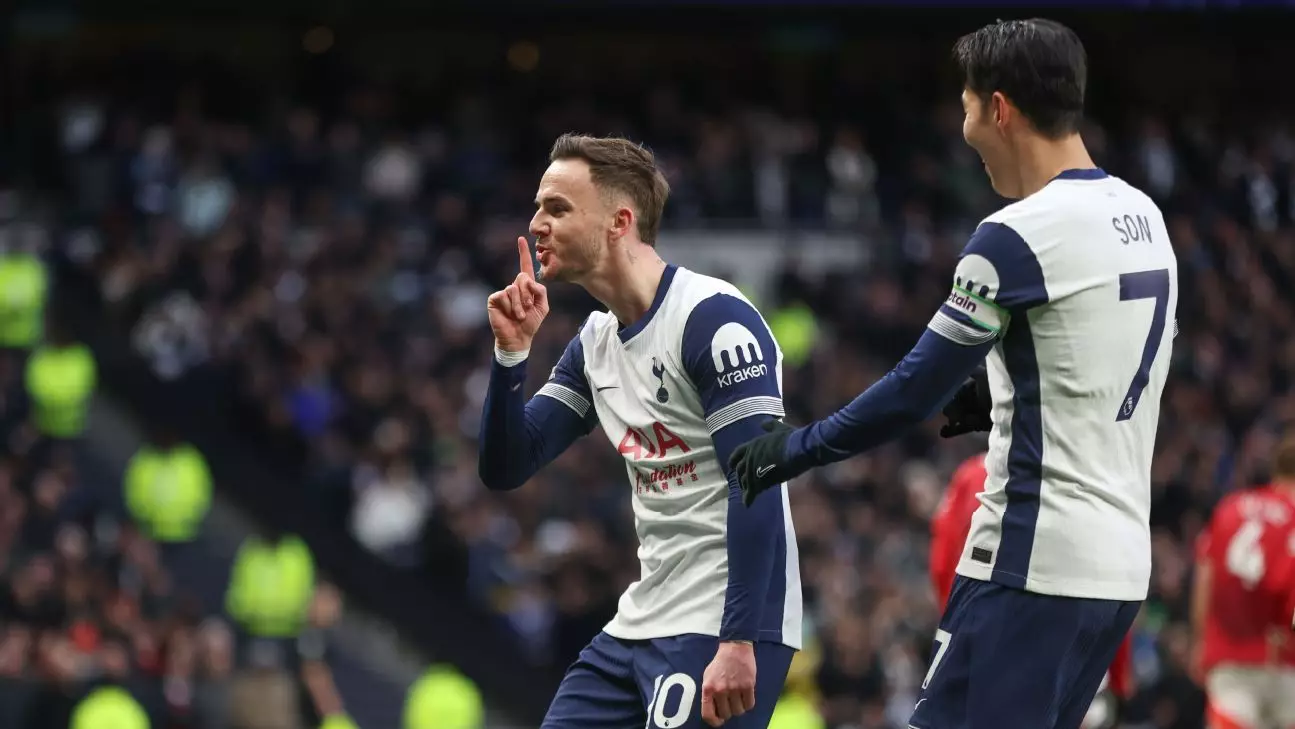In an exhilarating clash that underscored the contrasting fortunes of two Premier League giants, James Maddison emerged as a beacon of hope for Tottenham Hotspur. His decisive goal against Manchester United not only secured a hard-fought 1-0 victory but also served as a timely retort to the critical comments made by Roy Keane earlier in the week. This match encapsulated a swirling blend of tension, skill, and the oft-cited narrative of overcoming obstacles—a thematic thread that runs deep in sports culture.
Maddison’s close-range strike in the 13th minute proved to be the difference in a lackluster encounter that failed to live up to the expectations typical of such a high-profile rivalry. This moment of brilliance was not just a testament to his on-field abilities but a direct answer to Keane, underscoring the relentless scrutiny faced by players at the highest level.
Keane, a figure synonymous with tough love and blunt commentary, ignited a media firestorm by questioning Maddison’s influence at Spurs, comparing him to a player more suited for leisure activities rather than serious contention. Such public criticisms can weigh heavily on a player’s psyche, but Maddison’s response—both in his celebration and his post-match comments—suggested he had harnessed this criticism as a fuel for his performance.
The celebration that followed his goal—throwing an imaginary dart, complete with a finger to his lips—was riveting in its symbolism. It was more than just a playful act; it expressed a defiance against naysayers and a determination to silence doubt. In a landscape dominated by social media where opinions can spread like wildfire, Maddison outrightly acknowledged the weight of the external noise, yet he chose to channel it positively, indicating a mature and focused mindset that elite athletes must cultivate.
Maddison astutely referenced the challenges players face in today’s hyper-connected environment, where criticism is often instantaneous and pervasive. His assertion that he is self-critical reflects an understanding within professional athletes: the greatest adversary is often oneself. The need to block out distractions and maintain a level of mental fortitude is paramount, and Maddison’s success on the pitch underscores this necessity.
Spurs’ ascent to 12th place in the league, juxtaposed against Manchester United’s struggles in 15th, illustrates the evolving dynamics within English football. While Maddison’s prowess shines through, the broader context of the season places both teams in precarious situations, especially with injuries and form dictating the performances of key players.
Ange Postecoglou, Tottenham’s manager, has become a calming presence amidst the chaos that often surrounds high-stakes matches. His praise for Maddison illustrates a robust management approach that prioritizes player confidence and respect. Postecoglou’s comments emphasize not just the importance of individual talent, but also the collective spirit fostered within the team, a factor often overlooked in analyses of tactical setups.
The contrast with Manchester United’s current plight under Ruben Amorim reveals the complex narratives woven through football. With injuries piling up, United’s situation appears dire; however, Postecoglou’s refusal to sympathize speaks to the competitive ethos of football managers who are relentless in pursuit of success.
This clash served as a reminder that within the world of complex strategies and intense rivalries, it is often resilience and the ability to respond to criticism that distinguish a good player from a great one. James Maddison’s performance not only illuminated the pitch but also symbolized a reclamation of his narrative, one where he refuses to be defined by outside voices. As the season unfolds, both Tottenham and Manchester United will seek to stabilize, seeking not just points but a reaffirmation of their identities in the fiercely competitive realm of Premier League football.

